Continuing our look at the recent Gastronaut foodie trip of Murter and the national parks of Krka and Kornati, which finished on November 8, 2017, a visit to the island of Zut for a gourmet treat and a lesson in how private enterprise is bringing excellence to the Croatian tourism product, despite little support from official channels.
Idyllic Croatian islands - among the highlights of many tourist visits to Croatia this year. A hidden bay, an authentic restaurant with the freshest local seafood, olive oil, vegetables and homemade wine. Traditional and authentic Croatia at its very finest.
That is one side of the island story. Now let's go on a wonderful journey through the Kornati National Park and arrive at one of the finest restaurants on those wonderful islands, and make a simultaneous journey of both the outstanding culinary experience,
Day two of the recent Gastronaut trip to the island of Murter and national parks of Krka and Kornati started a little inauspiciously from a weather point of view. Still recovering from an excellent introductory dinner at Hotel Borovnik in Tisno (enterprisingly themed Beans and the Sea - read more here), and fresh from a morning visit to the fascinating Betina Museum of Traditional Wooden Shipbuilding, the Gastronaut crew set off in the rain from the pretty harbour of Murter Town for a tour of Kornati National Park and lunch at Restaurant Festa on the island of Zut.
Having lived on a Dalmatian island for 13 years (albeit one of the biggest, Hvar), I am well acquainted with the realities of island life. That idyllic authentic restaurant which is waiting for you as you emerge from the pristine Adriatic in August has been closed and left abandoned to the winter and the bura until it would open for the next season in May or June. Those wonderful summer months which all tourists enjoy are only possible due to locals who live the island life all year (and the winter is far less glamorous) and have everything in place so that the season can be enjoyed.
But while things can be tough for fulltime living on an island such as Hvar, with its permanent population of about 11,000, what must it be like on an island such as Zut, our luncheon destination? A luncheon destination, I was to learn, which attracts global stars on a regular basis (the names of Federer, Djokovic and Modric were three that remain with me). An island, which despite its celebrity appeal, has no ferry connection, no water, no electricity and no permanent inhabitants. In fact, it boast just four restaurants, one small shop and a marina. Three of the restaurants are in the same bay and close to each other, the fourth in a bay of its own.
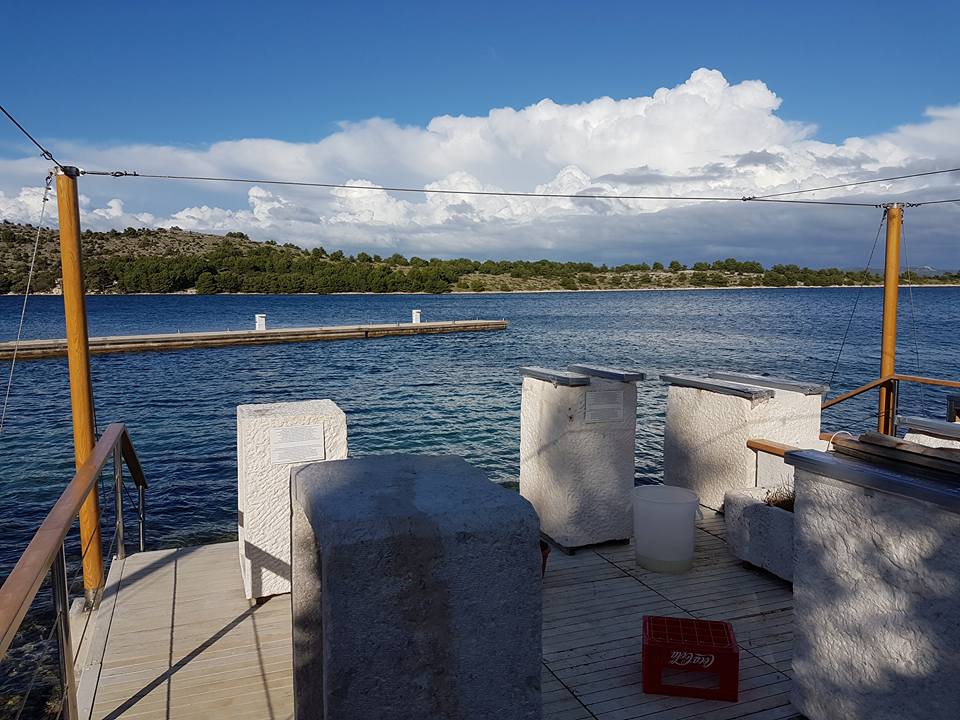
Stop and think about that for a minute. No ferry, no electricity, no water. An island surrounded by many others, each with their own charming bays. And so the crazy story of Restaurant Festa begins. If you are starting a restaurant business on an unknown island with no ferry, water or electricity, when would be a good time to open that business to make sure you succeed? How about 1993, in the middle of the Homeland War, which was not only a time which devastated the country, but also - from a tourism point a view - a time when most visitors stayed away for understandable reasons? And so Festa began in the middle of a war with no water, electricity or ferry. The island had plenty of olive trees, but little else. Building materials, generators, supplies - all of that has to come in by private boat - and the voyage to Zut from the mainland is not a particularly short one. What happens if your generator packs up or needs servicing? It is not just a phone call for an engineer to pop in - a boat transfer needs to be organised and paid for. Suddenly, the costs of this restaurant venture seem prohibitive.
And yet... I fell in love with Festa the moment we landed. It should be pointed out regarding the photographs that the restaurant is closed for the season and only opened to accommodate the Gastronaut crew. Festa's season is from April 1 to November 1, an impressively long one compared to many nearby destinations with a lot more infrastructure and marketing budget. Despite the restaurant's outside space being closed, I fell in love with that familiar attraction - authenticity. Where it would have been easy to contain some of the mounting costs on cheaper furnishings, Festa has done the opposite, with no less than 50 of these original Brac stone oil containers, which have not only been intelligently rebranded as bar furniture and shop display pieces, but they come with an informative and educational explanation of their origins.
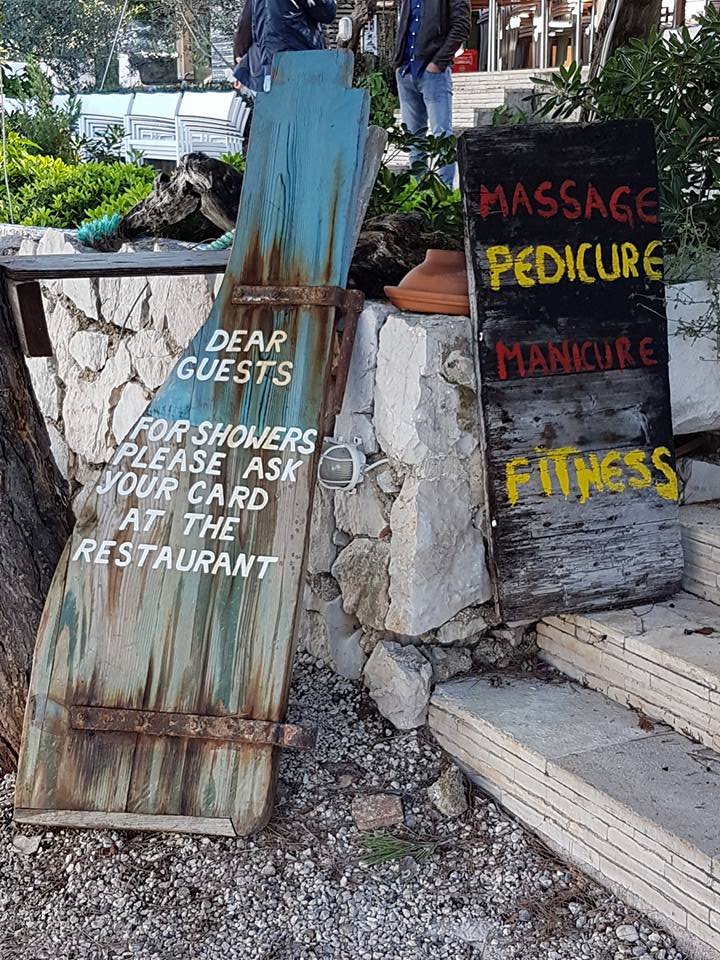
I am not a sailor, but what a nice welcome, with a range of facilities at your disposal, apart from the food.
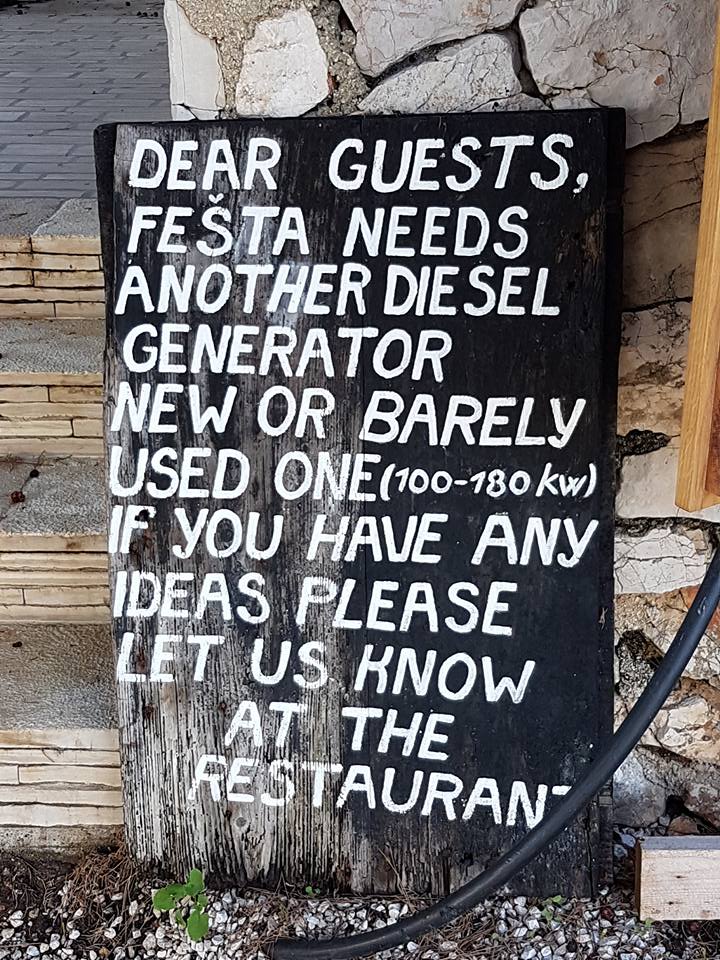
Another expensive generator is needed. Any ideas/suggestions - please contact the restaurant.
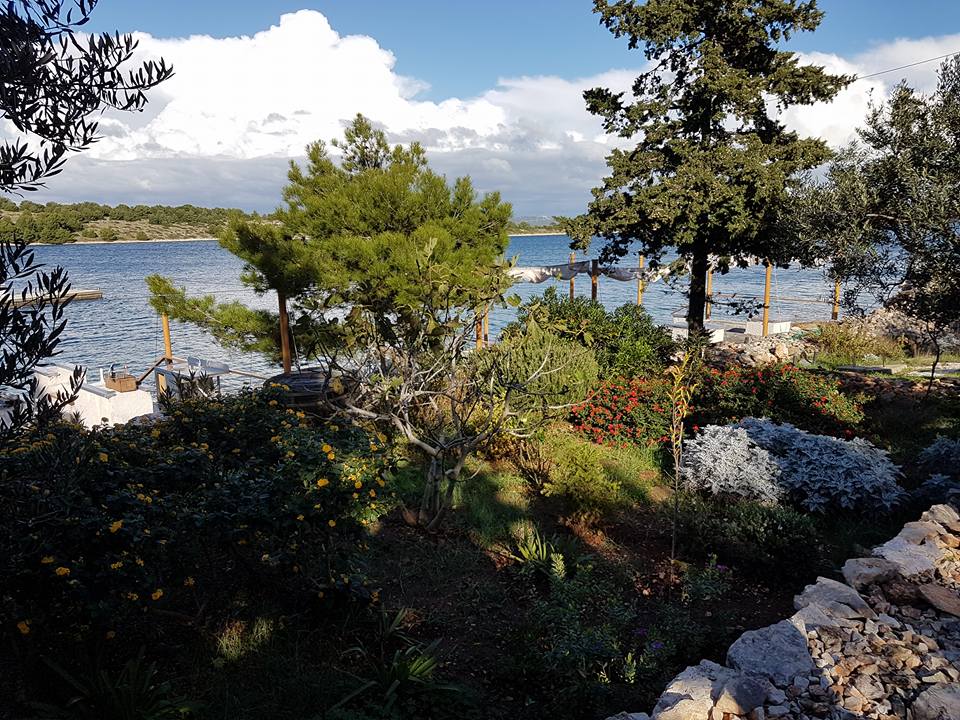
The whole Festa complex was superbly blended into nature, with a delightful garden to match, and the views of the peaceful bay were sensational.
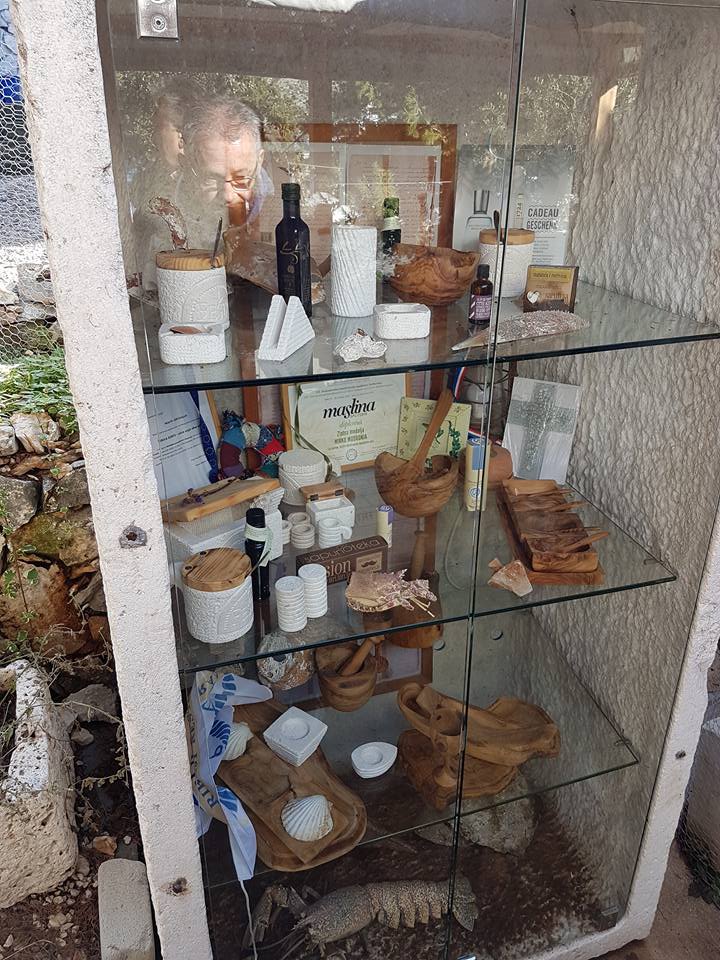
Those Brac stone olive oil containers put to good use again with a great selection of authentic and original souvenirs from Brac stone and local wood from olive trees.
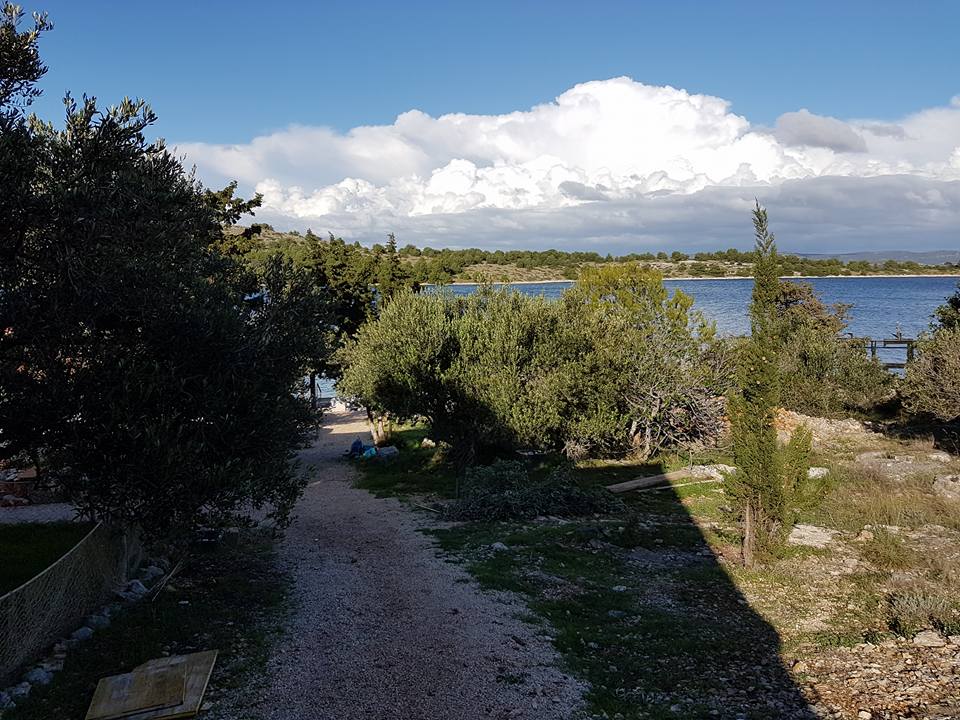
We are out of season, remember? In season, with all the furniture and activities on offer, it must be even more charming.
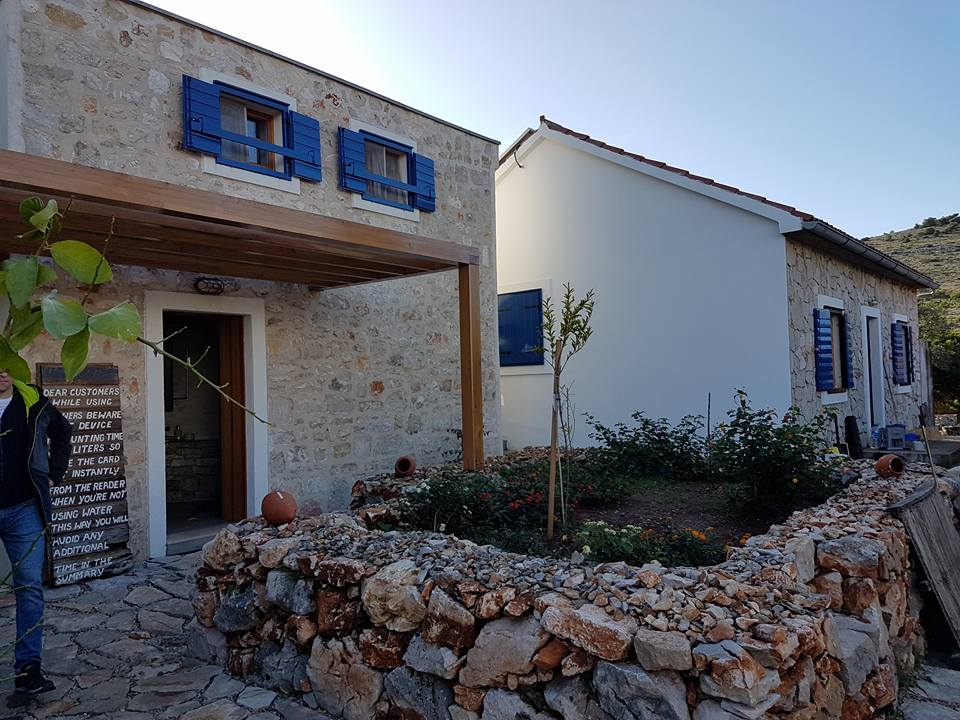
Part of the Festa complex behind the restaurant, wonderfully done and including some seriously high-quality toilets, at huge additional expense to manage the waste without dumping it in the sea.
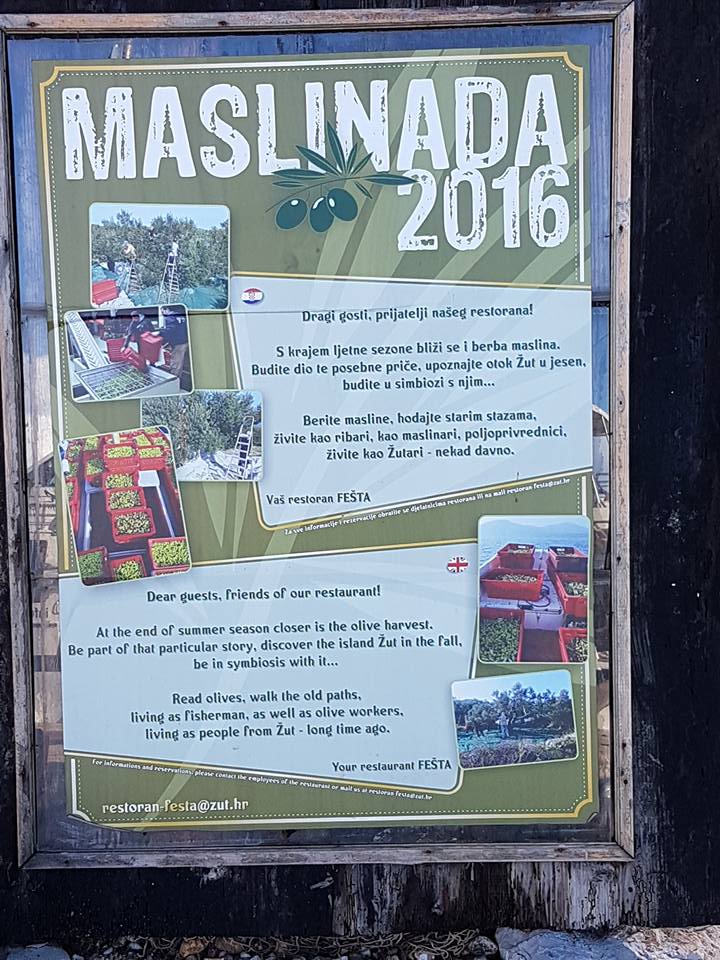
Festa also produces its own extra virgin olive oil from 350 trees behind the restaurant, and it offers an olive picking package with accommodation and food for a few days during the olive picking harvest. A unique and unforgettable tourism experience, I am sure.
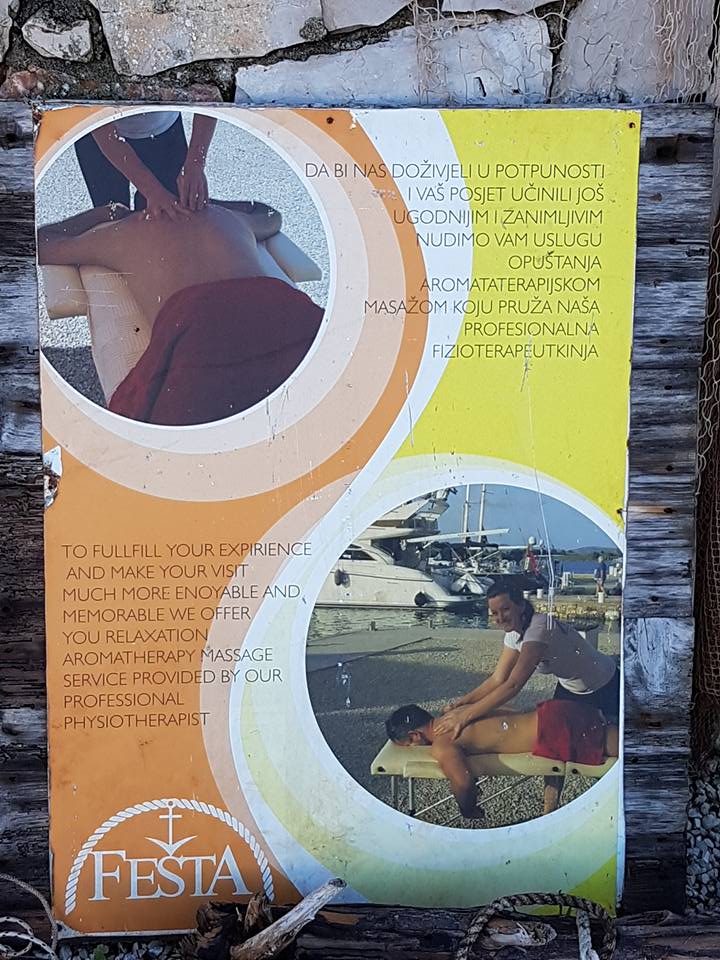
Memories of summer, and the additional services which Festa now offers - they have come a long way from those 1993 beginnings.
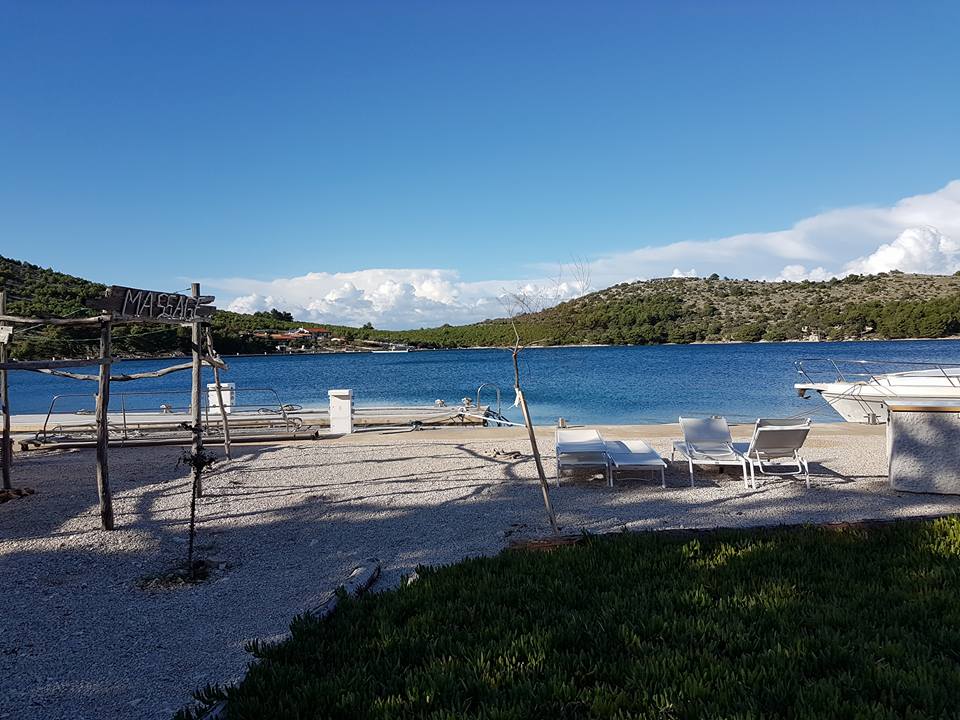
All closed for the season, but what must this be like in the summer?
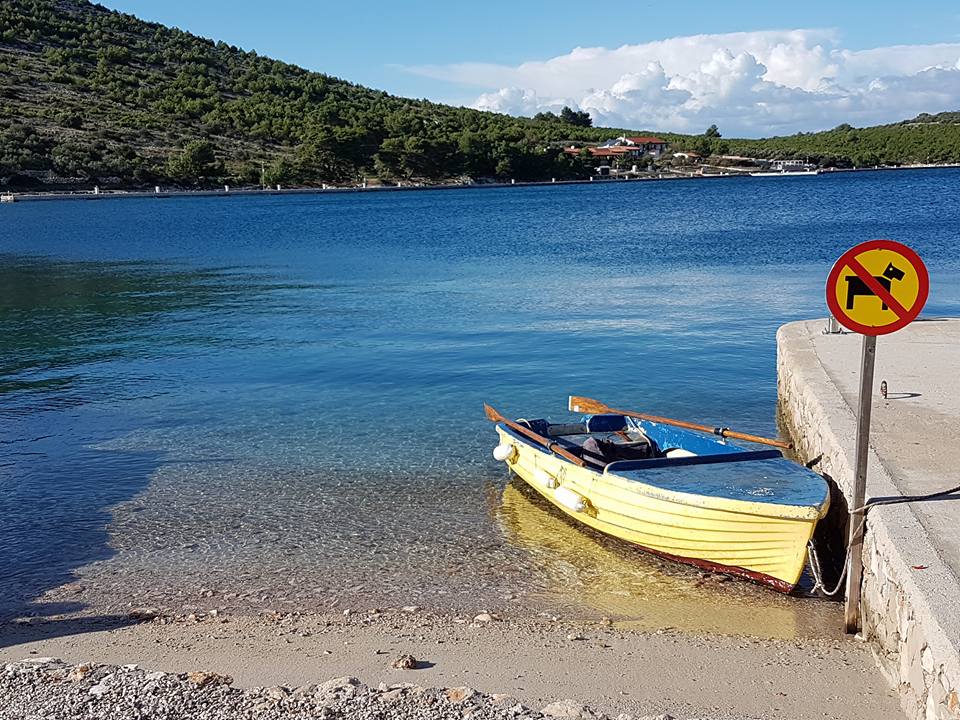
Timeless.
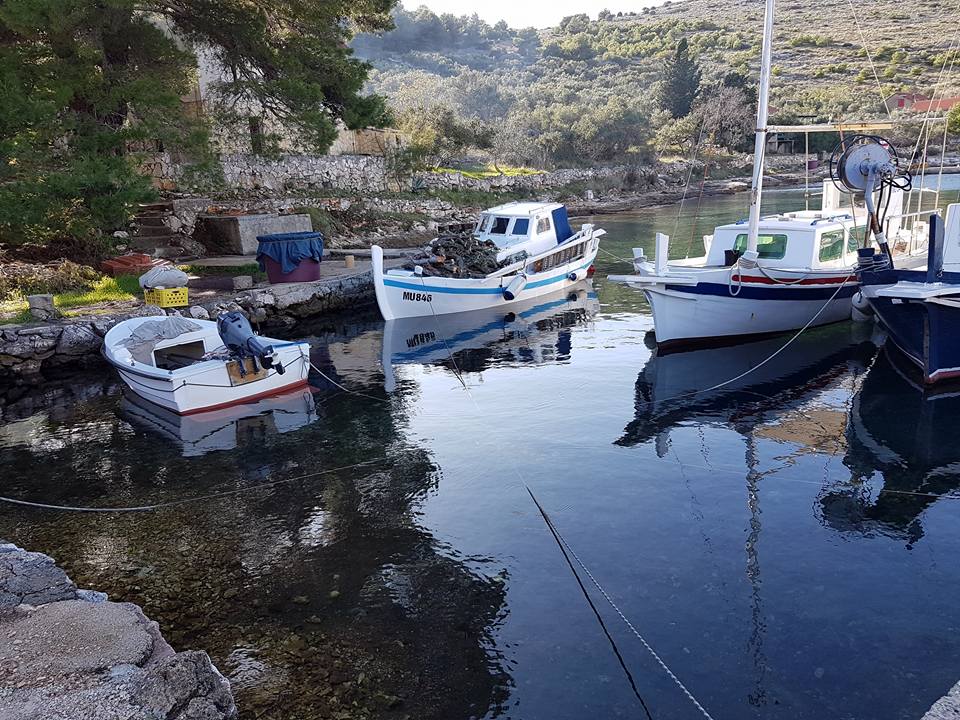
Local boats moored up, including one filled with firewood, a reminder that almost everything has to be brought in privately - and expensively.
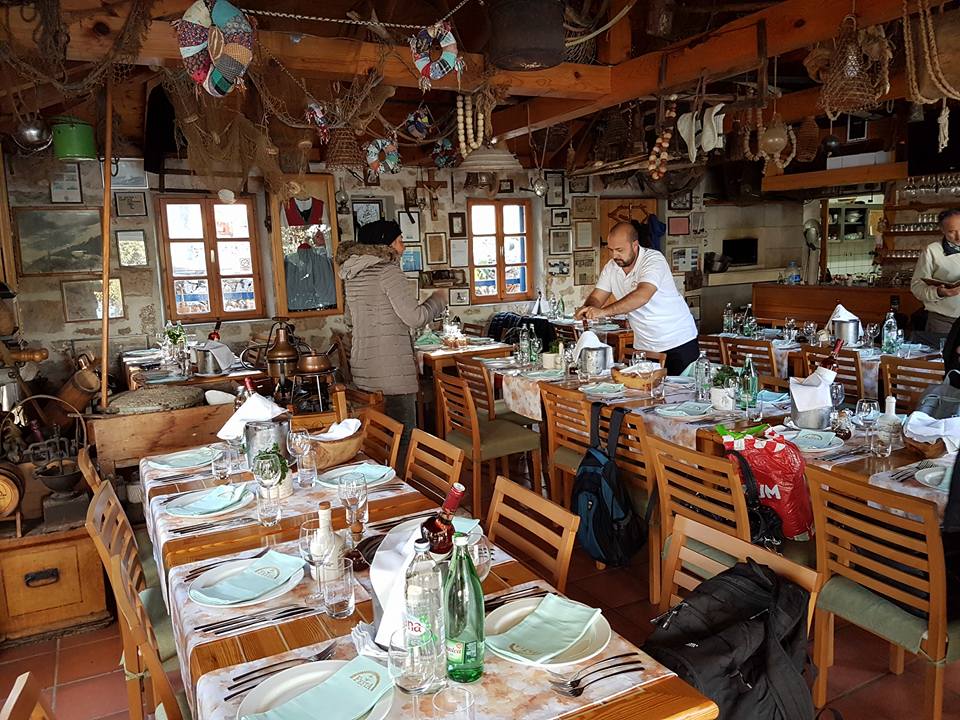
And so to the restaurant itself. Unpretentious and a regular Dalmatian tavern.
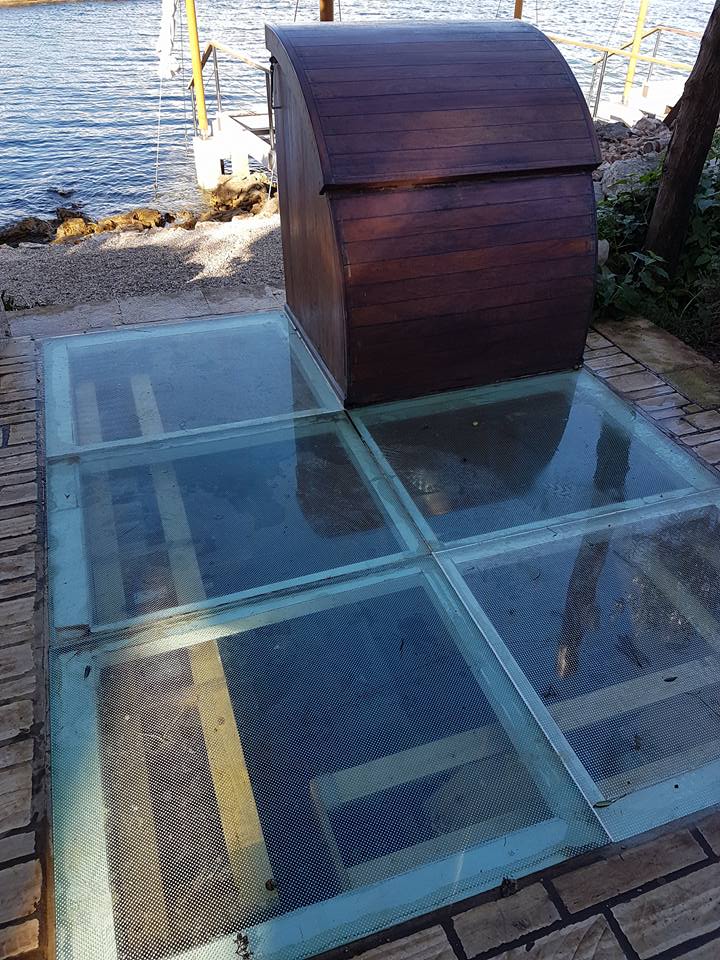
The wine list was as good as I have seen in Dalmatia, with no less than 500 wines on the list. Not 500 bottles, but 500 types, from the very finest Croatian wines to a mouthwatering international and Champagne selection. As with the wines, the same too for the spirits and cocktails in the now-closed cocktail bar. And what a cute wine storage place Festa has - right by the sea with a reinforced glass roof. Sadly it was locked as I would have liked to have had a look downstairs.
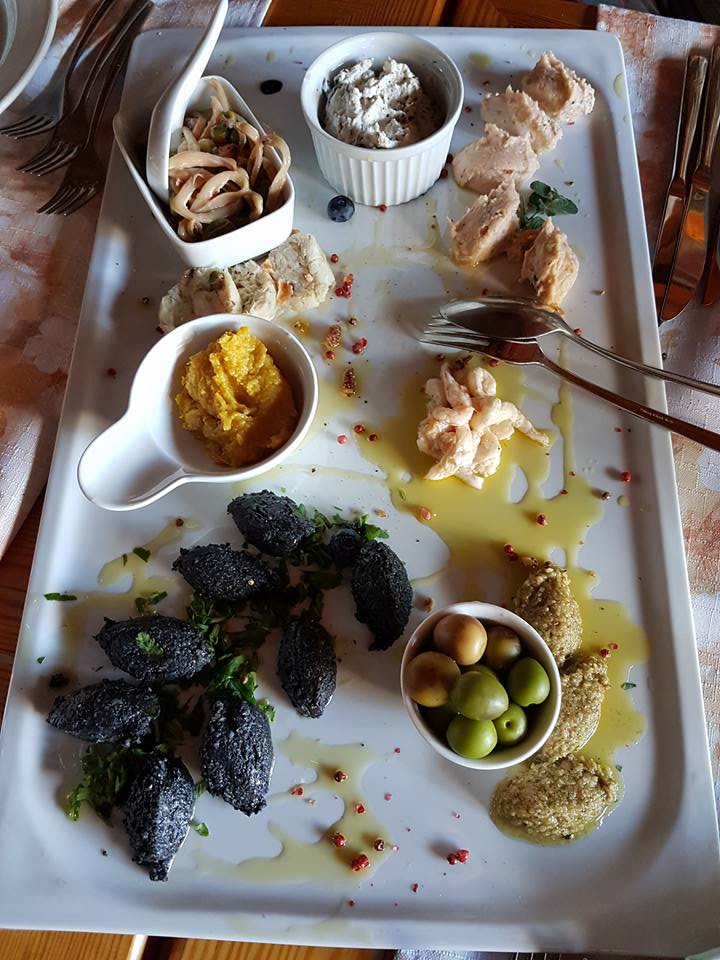
And so to the food. A spectacular selection of local seafood starters, which tasted every bit as good as it looked.
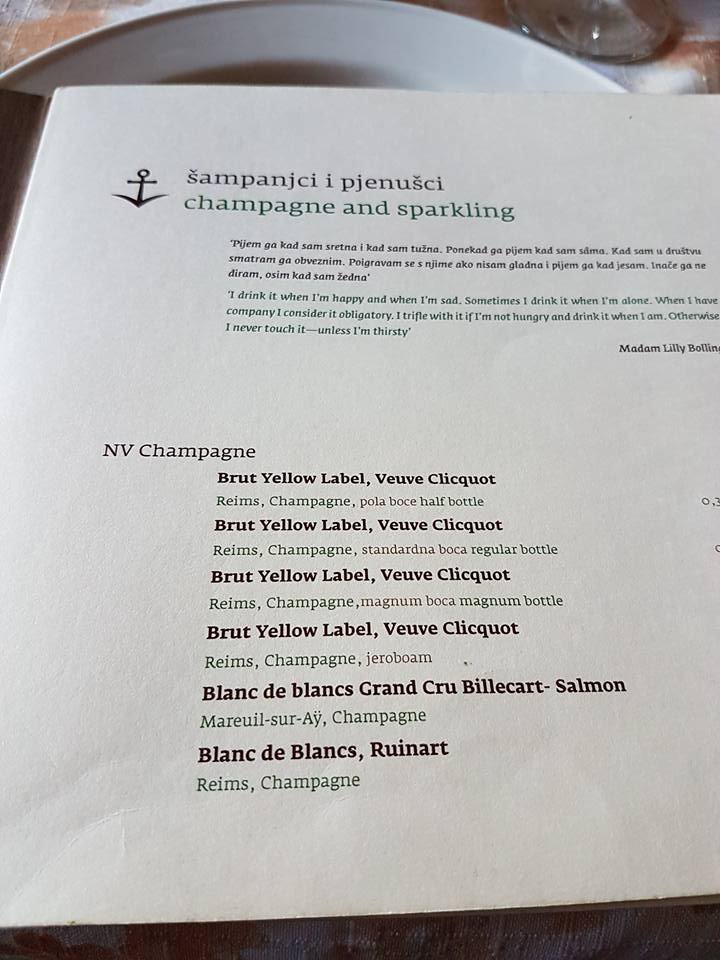
There was time to peruse the wine list while waiting for the next course - page one of three of the Champagne section.
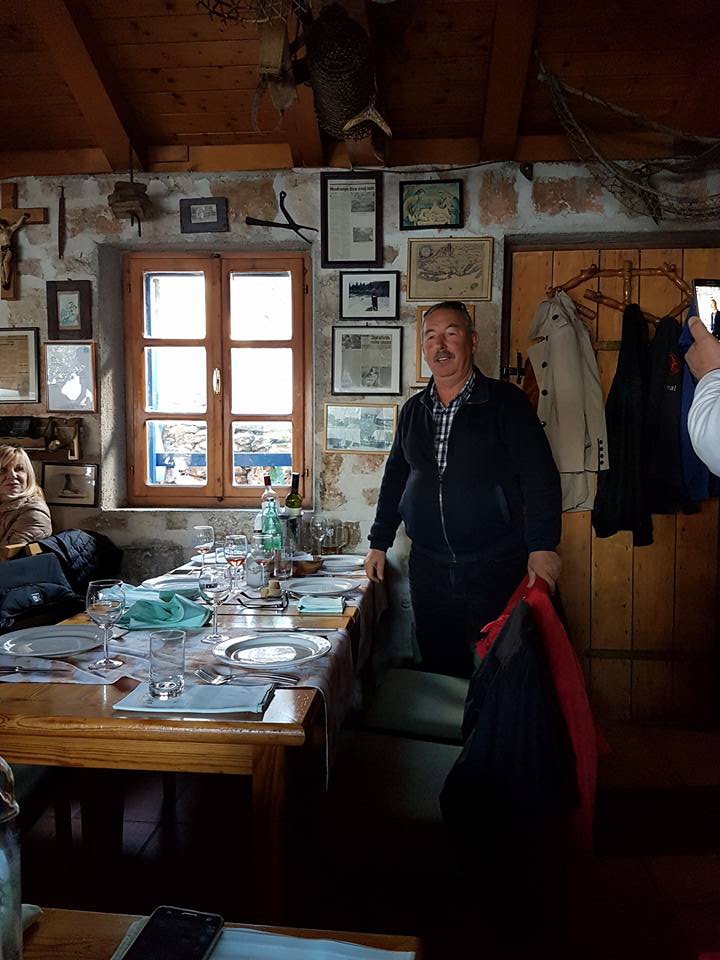
The accompanying wines were from PZ Svirce on Hvar and were introduced by director Andrija Caric. Opolo rose, Posip and Plavac Mali Reserve were worthy companions to the feast which was unfolding before us.
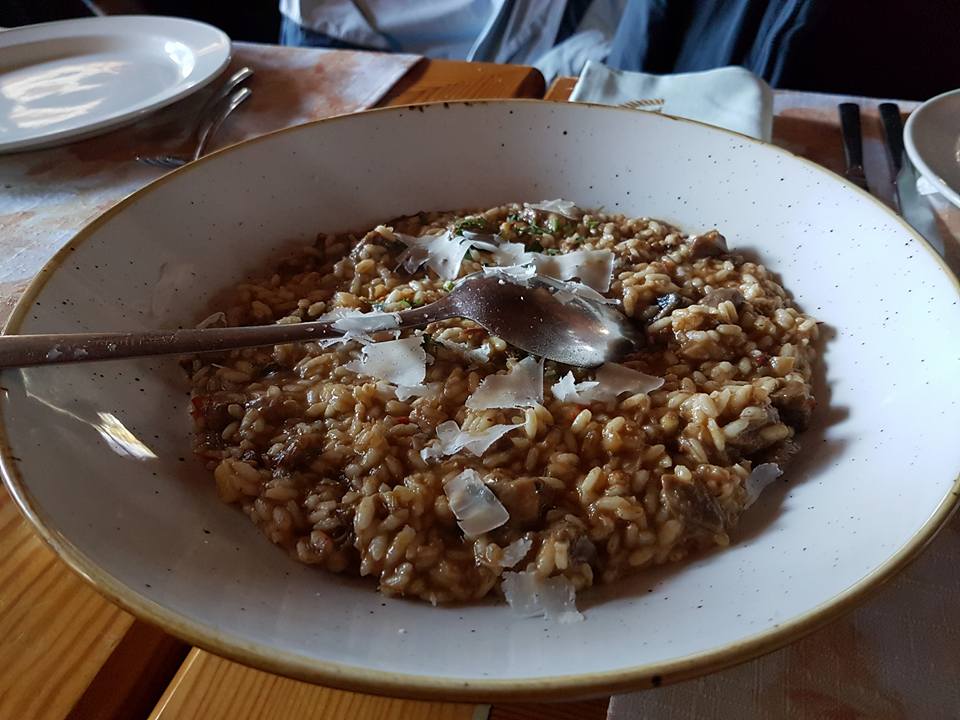
Smoked Kornati lamb risotto.
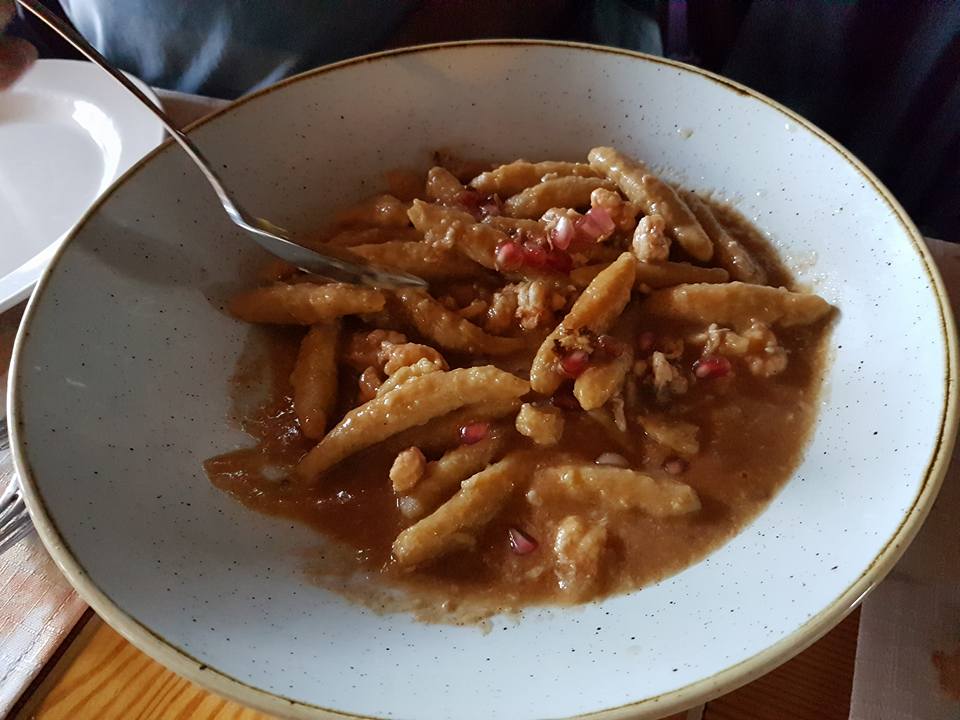
Adriatic shrimps with chickpea gnocchi.
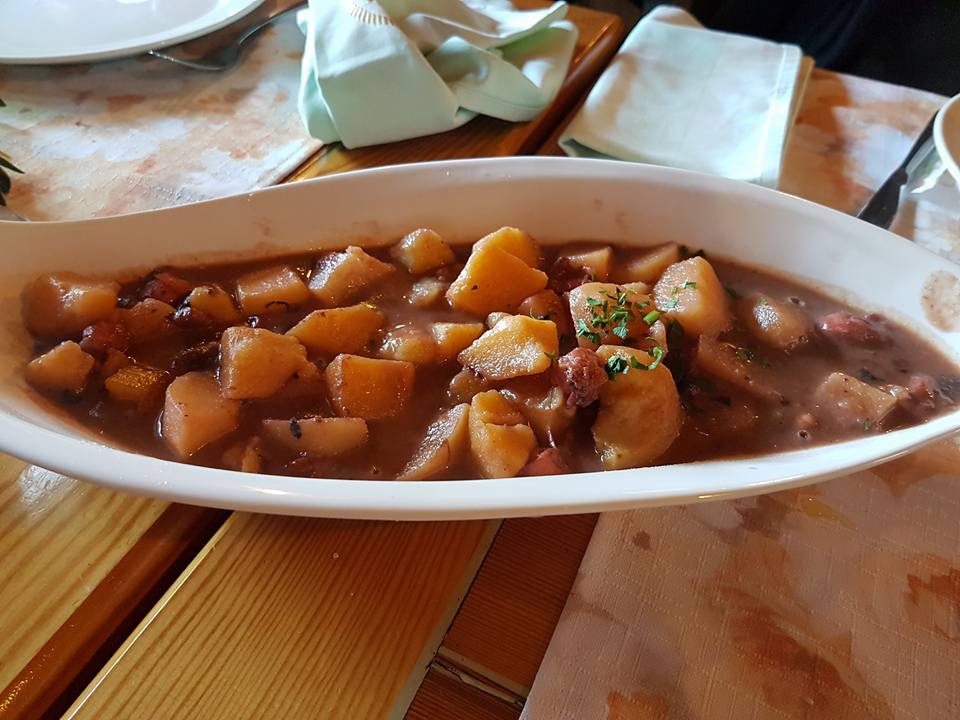
Octopus brudet.
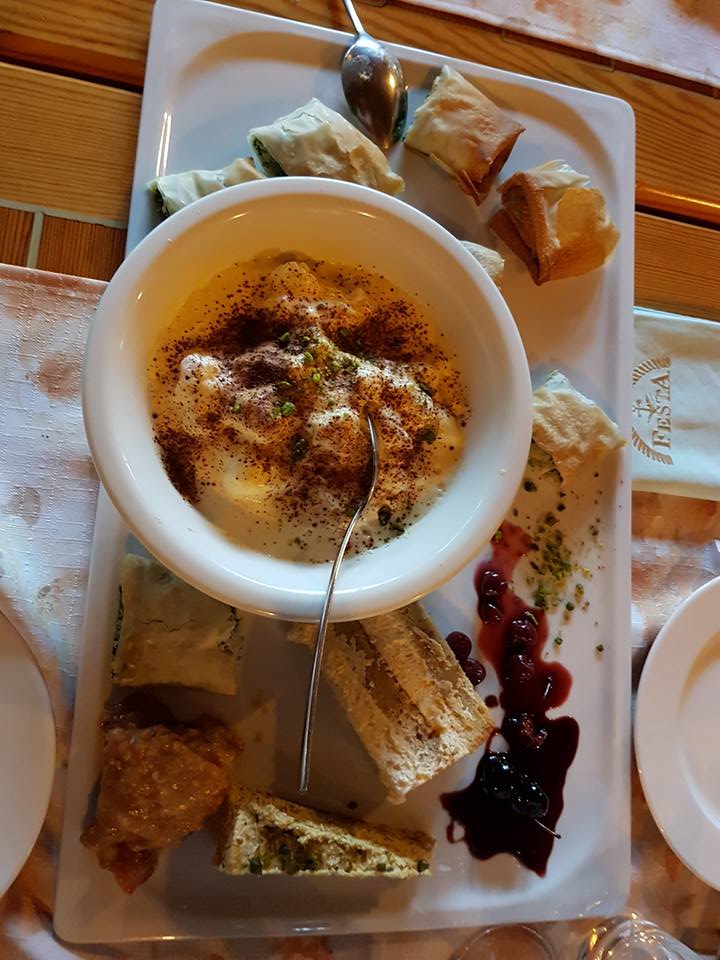
And a fine selection - both sweet and salty - of desserts to finish. Beautifully served, exquisitely presented, and thoroughly enjoyed by all.
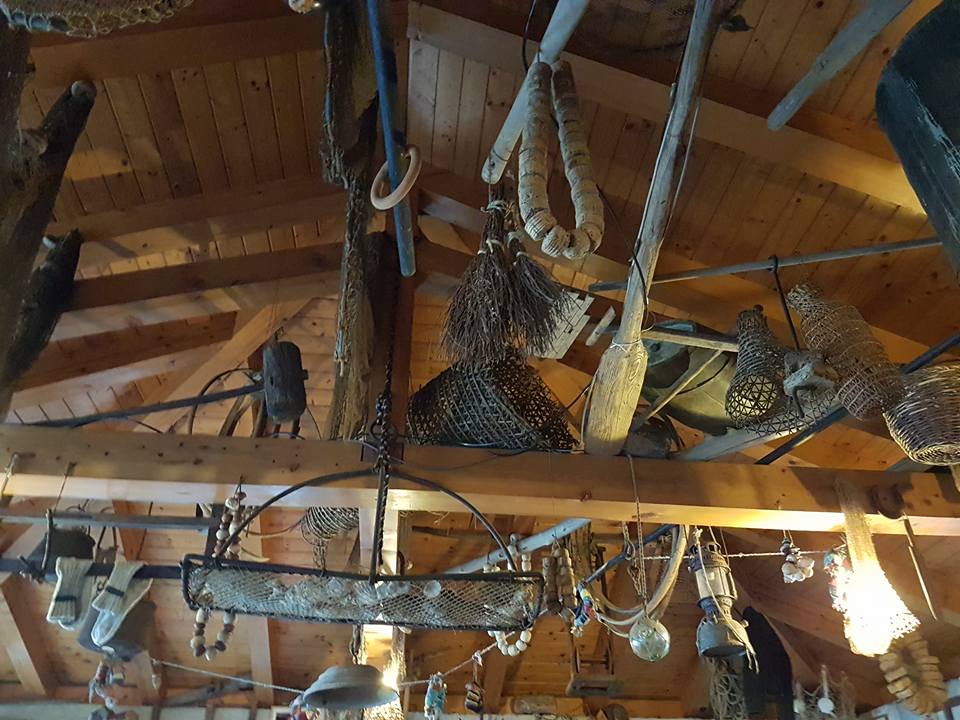
Authenticity at every turn - the view above the restaurant tables.
So why is Restaurant Festa a case study in of the paradox of Croatian tourism?
Hugely successful and very much deserving of that success, the Festa story has been built with little or no support. Official bodies are quick to boast of the authentic island experience offered by Croatia's islands and outstanding hospitality centres such as Festa, but not so quick to help those island entrepreneurs achieve that success in the form of tax breaks or financial assistance. During his speech introducing the wines of Svirce, Andrija Caric estimated that the cost of life on Hvar was about 30% more than on the mainland. And for places like Zut, of course, with no ferry, water or electricity, the costs are obviously much, much higher.
And yet, where are the tax breaks and incentives to help businesses such as Festa develop one of Croatia's huge potentials - nautical tourism? It is a fact that had one man (and the other three restaurants now there) decided to not open a restaurant in the middle of the Homeland War, Zut would probably today be an abandoned and unvisited place - there are, are there not, so many islands to choose from. It is also the case that Festa has succeeded where so many have failed. Imagine how much richer Croatia's nautical offer could be if just 10% of those failed businesses had survived and prospered with some state help in the form of tax breaks or financial assistance.
The potential of Croatia's nautical tourism is staggering, both in its beauty and in its revenue potential. It is time, at least in my humble opinion, for Croatia to work with island businesses to encourage more entrepreneurship and to lessen that 30% (and higher) financial handicap that comes with the privilege of living on an island fulltime. If not, the inevitable will happen, and more islanders will emigrate and less people will try, leaving businesses such as Festa to be the exception as opposed to something which could be replicated in some ways elsewhere.
All of which leads to the final thought - that of congratulations to the team at Festa. An unforgettable experience and a sensational achievement. Now go and check out their website and see how it looks in season. Wonderful, wonderful place.


